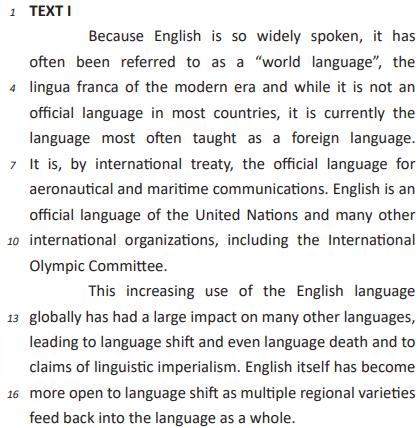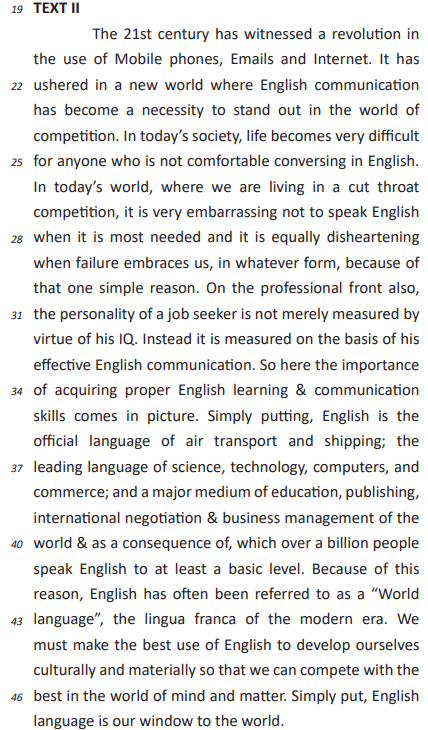Questões de Concurso
Foram encontradas 1.497 questões
Resolva questões gratuitamente!
Junte-se a mais de 4 milhões de concurseiros!
Jane called off the wedding minutes before the ceremony.


In text II, the verbs “has witnessed” (line 20), “has become” (line 23) and “has ushered” (lines 21 and 22) are in the present perfect tense, as well as the sentence “Because of this reason, English has often been referred to as a ‘World language’, the lingua franca of the modern era.” (lines from 41 to 43).